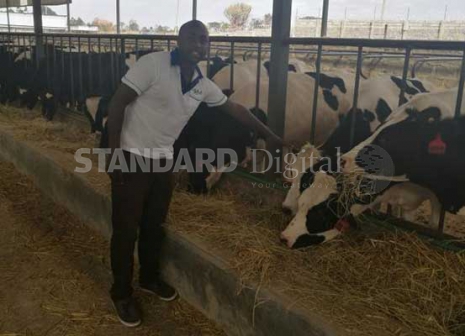×
The Standard e-Paper
Fearless, Trusted News

After graduating in 2012, Mr Biko Kithinji had his eyes trained on dairy farming. Unlike many college graduands, Biko’s mind had shifted away from seeking employment.
That, he says, was not by chance. It was all planned by Biko himself no less – save for the inspiration he got from his family’s decade-long dalliance with dairy farming.